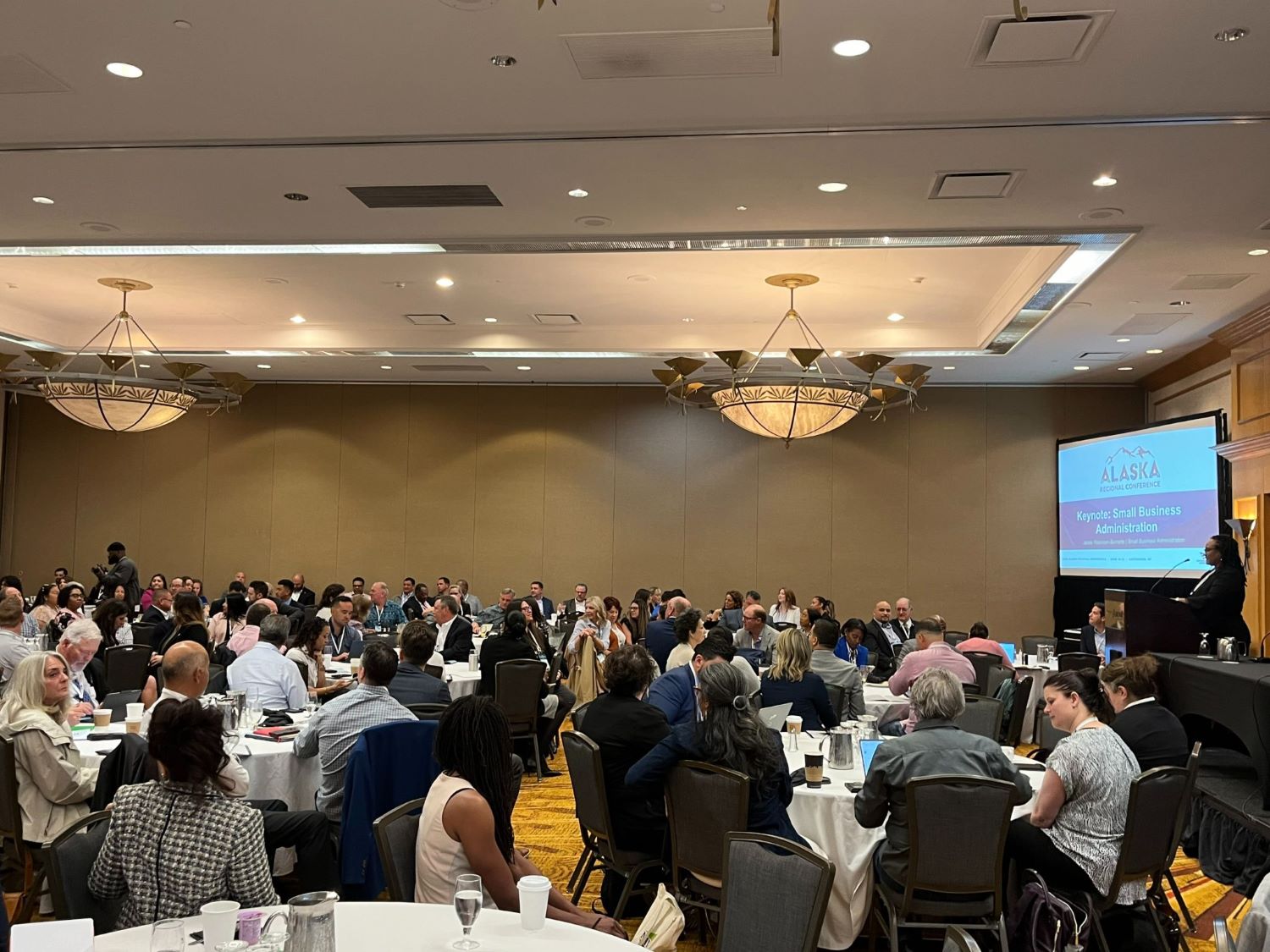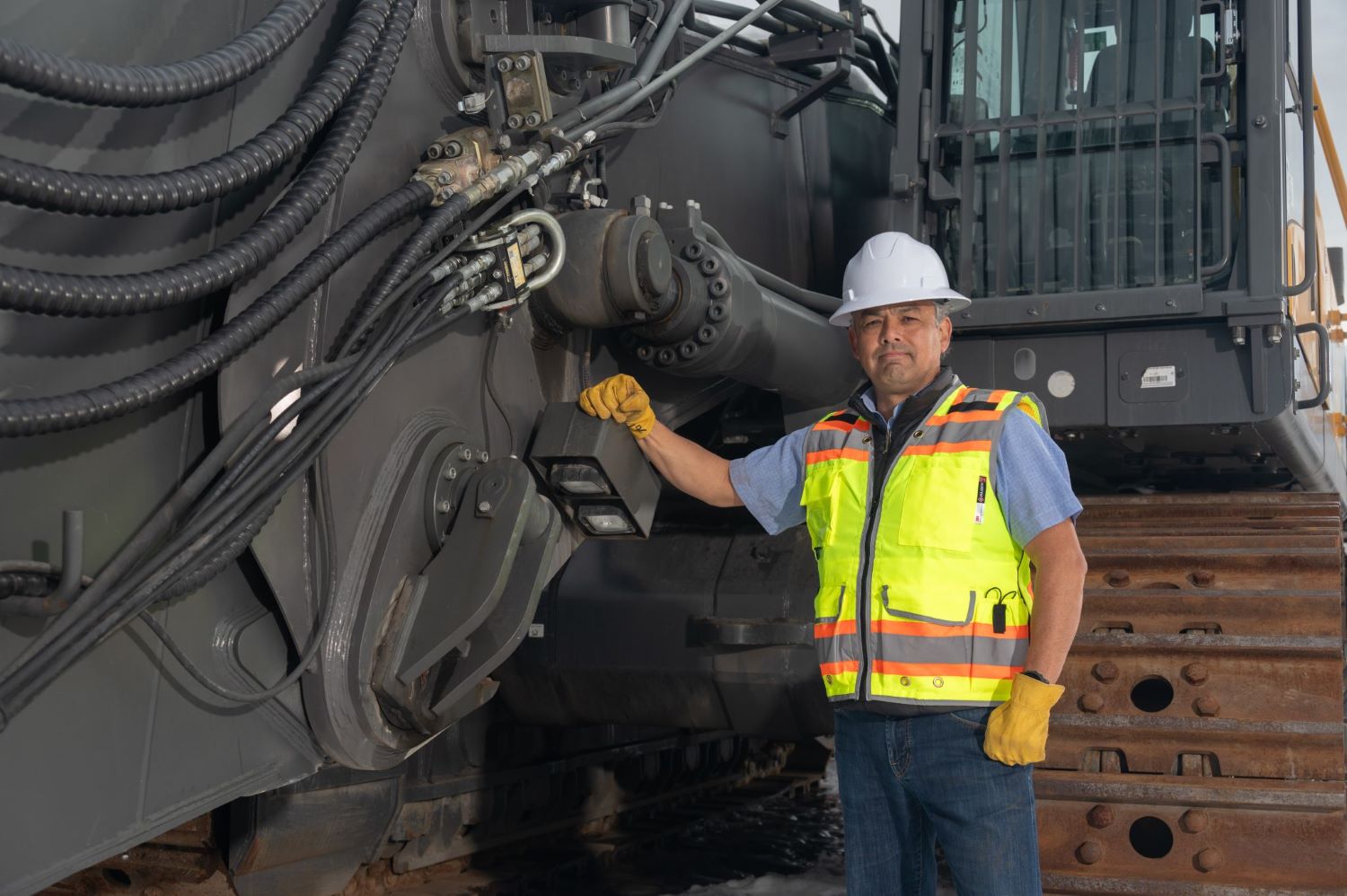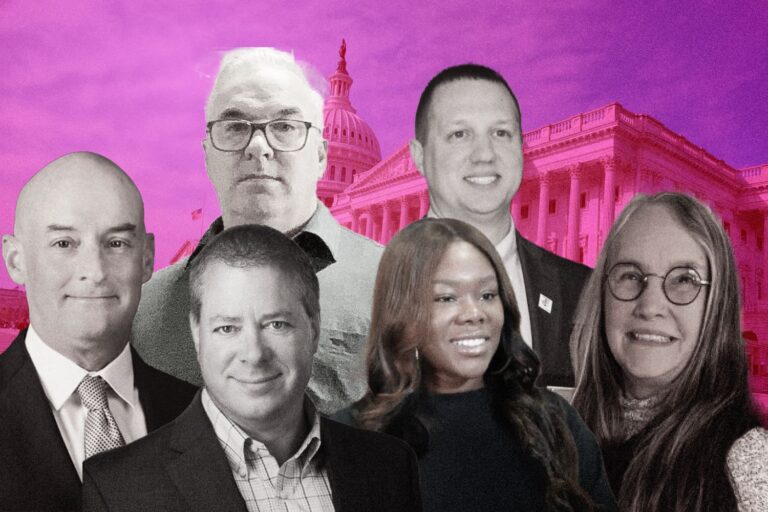Mark Ryan’s Guide to Successfully Obtain Certifications for Government Contractors
Government contractors can relate to this daunting task – getting an 8(a) certification.
Despite the benefits of certifications like 8(a)—such as increased access to federal contracts and business development support—the process can be a significant pain point for many government contractors, especially those who are new.
To guarantee the 8(a) program benefits its intended audience, the SBA meticulously examines both the applicants and their businesses. As a result, submitting an 8(a) application requires providing extensive information.
It’s the same with other certifications, such as women-owned or veteran-owned—each comes with its own challenges. The truth is, many businesses struggle to get certified, even after years of effort. That’s why Mark Ryan, the founder of ez8a, is here to help.
In a podcast episode with Kizzy Parks, Mark not only provided clear guidance and support throughout the certification process but also highlighted common mistakes that can hinder obtaining and leveraging certifications. Before diving into the main course, let’s first explore why companies like EZ8A are invaluable to government contractors.
What Is ez8a and What Do They Do?
Ez8a, founded in 2004 by Mark Ryan, helps businesses obtain 8(a) Certification and expand into other federal certifications (HUBZone, SDVOSB, WOSB, DBE), as well as state certifications, GSA Schedules, and proposal preparations for IDIQ GWACs and MATOCs. Over the years, we’ve grown to provide essential services for firms aiming to succeed in federal contracting.
With 18 years of experience, their mission is to help clients secure federal certifications, acquire the right contracting vehicles, and leverage these resources to build strong relationships with their largest customer—the federal government.
According to Mark Ryan, a leading expert on government socioeconomic program certifications, serves as the SBA’s Subject Matter Expert for 8(a) lifecycle training, “Basically, we’re a firm that helps people out. Getting certifications and GSA Schedule contracts is complicated, and for most people, it’s not worth their time to learn how to do it. You can spend 100 hours working on an 8(a) application, pay yourself minimum wage to do it, and still get denied. Or, you can have somebody like us come in and do that.”
With over a couple thousand firms assisted, he has witnessed a range of outcomes, from success stories to businesses graduating, retiring, or being sold. With his extensive experience, Mark Ryan understands the roadblock that government contractors face—getting certified. As mentioned in the podcast, Mark believes the first thing you need to do is identify which certification is the best fit for you.
How to Identify Which Certification Works Best for Your Company
Every government contractor knows how famous 8() is in the game. The certification offers significant advantages to small, socially, and economically disadvantaged businesses. It provides access to set-aside and sole-source federal contracts, which can be a major boost for business growth.
However, the downside is that not everyone qualifies for it, as shared by Mark Ryan.

He explained, “For sure, the 8(a) certification is the Holy Grail of federal contracting. If you’re minority-owned and you can get it, no doubt, that’s where you’re going to drive the most value, the most benefit. The average 8(a) contractor is making a little over $6 million a year with that certification, so it’s the best. Unfortunately, most people don’t qualify for it since you have to be minority-owned to get it.”
For those who don’t qualify for 8(a), he suggests other certifications like GSA Schedule contracts, veteran-owned certifications, or HUBZone certifications, which can all provide similar value, averaging between $1.2 and $1.4 million a year.
The specific certification that works best depends on the company’s industry: for professional services, the GSA Schedule is preferred, while for industries like janitorial or construction, the HUBZone certification is more beneficial.
“For example, if I’m a professional services company, I want my GSA. I don’t care about HUBZone much. But if I’m in janitorial, construction, or any sort of building maintenance, I want to get my HUBZone. You’re going to get a lot more value there,” said Mark Ryan.
Next up is the woman-owned certification. While this certification is valuable, it might not be as impactful as others due to the high number of businesses with this certification. Despite this, he maintains that it’s still worthwhile to pursue due to the potential benefits it offers.
He stated, “It’s valuable, but there are a lot of them, and those companies are averaging, I think, in the mid-$400,000s. Certainly worth getting, and you can drive a lot of value from it, but for each person, you just have to look at what they can get and go after it.”
According to the expert, businesses should aim to obtain any certification they qualify for, as each one offers valuable benefits. New opportunities, such as GWACs or IDIQs, arise annually, so if government contractors find themselves eligible for these certifications, they should pursue them. Ultimately, the goal is to leverage all available certifications to maximize business growth in federal contracting.
“Ultimately, getting any certification you can is going to help you. Getting a GSA Schedule contract, if you’re in an industry that can use it, is going to help you. So really, the process is to look at a company and see what all they can get, and get all of it,” he shared.
8(a) Certification Doesn’t Guarantee Federal Contracting Success
Many government contractors hold the belief that obtaining a certification—whether it’s 8(a), service-disabled, HUBZone, or woman-owned—will automatically open the floodgates to a wealth of opportunities, as mentioned by the host Kizzy Parks. The idea is that once a company is certified, contracts will simply start pouring in, leading to success and financial gain. However, Mark Ryan has said otherwise.
Mark Ryan explained that getting the 8(a) certification alone does not automatically guarantee success in federal contracting. He stresses that after obtaining the certification, businesses must actively market themselves and take strategic steps to succeed.
Opportunities Don’t Walk into Your Life If You Don’t Take Action
He pointed out that many firms in the 8(a) program fail to thrive because they didn’t put in the effort to promote their business or use their certification effectively. As noted by him, businesses that market their certification and take initiative can achieve substantial revenue—some top firms are making millions a year.
“The next quarter of 8(a) firms—those in the 50 to 75% range—are averaging almost $9 million a year. The top 25% of 8(a) firms, about three years ago, were making $17 million a year in revenue. So, the folks that take the certification, market themselves, and use it do extremely well with it. The ones that don’t drive no value from it,” he provided the evidence.
However, those who simply wait for opportunities to come to them, relying on SBA representatives to find contracts, will likely see very little success.
He explained, “Ultimately, the phone doesn’t regularly just ring. I did a white paper on this probably six or seven years ago, and you can see when you look at the cross-section of certified firms how the bottom half of 8(a) firms are doing less than half a million a year in 8(a) revenue.”
Mark added, “I mean, it’s very anemic, you know, it’s nothing. Those are the firms that get the certification and don’t market it, don’t do anything, and just wait for their SBA representative—called a Business Opportunity Specialist—to put something in their lap, basically a source sought notice. You’re going to get very little revenue doing that.”
8(a) Success is Strongly Tied to Relationships and Marketing
The unique nature of the 8(a) certification, compared to other certifications like HUBZone, woman-owned, or veteran-owned, is that 8(a) firms can receive sole-source contracts. This means they can be awarded contracts without competition, based on relationships and marketing, rather than just low-cost bidding.

“When it comes to the four different certifications out there, 8(a) is very different. It’s unique, and that’s why I call it the Holy Grail. 8(a) is unique in that you can get sole-source contracts, which completely changes how you market an 8(a) firm compared to marketing a HUBZone, woman-owned, or veteran-owned firm. Those other certifications don’t get set-asides, so relationships are important, but they’re not as critical. What’s critical is past performance, doing a good job, having good CPARS, and providing good value. In contrast, with 8(a) firms, everything comes down to relationships and marketing,” Mark Ryan explained.
This is why, as advised by Mark Ryan, 8(a) firms should focus on identifying agencies that frequently use 8(a) contractors and building strong relationships with those agencies, rather than simply bidding on set-aside contracts as with other certifications.
“We want to identify an agency that is a good fit for us, and it’s pretty easy to do that. You can go to usaspending.gov, check out the SAM database, and download the data to look at it,” he stated.
He also said, “Ultimately, by looking at the data in the database, you should be able to identify one, two, or sometimes three agencies that are a good fit for you.”
Once an 8(a) firm establishes a relationship with an agency and performs well, it can lead to more opportunities through referrals and sole-source contracts. Successful 8(a) firms often work with just one or two agencies, building deep relationships within those agencies.
“That’s because 8(a) is relationship-based. For example, once I get into the Department of the Interior, do one job, and do a good job, the contracting officer likes me and refers me to other contracting officers they know. It just builds from there,” he said.
He continued, “Typically, successful 8(a) firms are working with just one or two federal agencies and building relationships within those agencies. As they gain confidence from the people within those agencies, those agencies will want to sole-source work to them when the opportunity arises. When they have something they need done, they’ll know they can just call me and award a sole-source contract to get it done. So, the goal is to get in with an agency that’s a good fit for you, uses 8(a), and then start building relationships within that agency.”
How to Market Yourself as an 8(a) Certified Firm

Even when government contractors have the silver bullet of being an 8(a) certified firm, some people don’t know how to market themselves. This is why they should consult Mark Ryan’s approach.
Research and Identify Target Agencies
As mentioned above, government contractors can use resources like usaspending.gov and the SAM database to identify agencies that frequently award 8(a) contracts.
If you have already found the agency that you think is the best fit, you need to give it a few months to see if it’s a real opportunity before moving on to the next agency.
Before reaching out to contracting officers, businesses can contact the Office of Small and Disadvantaged Business Utilization (OSDBU) or the equivalent office within the agency. Request a meeting to discuss your capabilities and seek assistance in disseminating your information. Often, they can provide a directory of contracting officers, which is invaluable for your outreach efforts.
Mark Ryan noted, “A lot of times, I’d say half the time, they’re wonderful; they’ll give you a meeting, they’ll sit down with you, understand your capabilities, and they’ll at least act like they’re going to make an effort to disseminate your information and help make some connections for you. At the very least, you can almost always get a directory from them, which is fantastic because half the time you only have someone’s name and email or name and phone—you don’t have both.”
Government contractors can also search for agency forecasts online to identify upcoming opportunities and additional contacts within the agency. These forecasts can provide insights into potential projects and help you refine your targeting strategy.
Initiate Contact with Contracting Officers – How to Make a Good Introduction
Government contractors, particularly 8(a) firms, should be prepared for multiple attempts when reaching out to contracting officers, as shared by Mark Ryan. It’s common to make many calls, leave several voicemails, and keep trying until reaching the right person.
Mark stated, “It’s not uncommon to make 15 calls before I finally get the human. I’m not going to leave voicemails every time. Probably by the fifth or sixth call, I’m going to leave a voicemail, then I’m going to try another 10 times or so. Eventually, I’m going to get the person.”
When a contractor finally speaks with a contracting officer, it’s crucial to quickly demonstrate that they understand the work and offer real value. Instead of asking vague questions or seeking help, the contractor should reference specific contracts, show knowledge of the agency’s needs, and explain how they can contribute to the success of the project.

“You have about 10 seconds to convince them that you’re not a waste,” he said.
Mark advised against the common rookie approach of saying, “We’re 8(a), what do you have for us?” He explained that such an introduction was ineffective and would likely lead to the contractor being dismissed.
“And the person doesn’t want to deal with you—they don’t want to put their neck out for you, and you’re clearly a novice who doesn’t know what you’re talking about. They just want to get you off the phone,” Mark highlighted.
If government contractors have a good conversation with a clear, value-focused pitch that demonstrates their alignment with the agency’s previous work, the contracting officer will likely refer them to the appropriate person (usually a program manager), who can help guide them through the process and potentially award contracts.
Mark believes that by building a relationship with that program manager or contracting officer, you aim to position yourself as a strong candidate for upcoming contracts. When the contracting officer reintroduces those contract requirements for bidding, you want them to ensure the bid is structured in a way that makes you a favorable bidder.
More importantly, your goal is to convince the contracting officer to directly award you the contract (through a sole-source award), bypassing the competitive bidding process, because they trust your ideas and want to work with you.
“You’re wanting him to just ask the Contracting Officer to sole-source it to you because you’ve convinced him about your ideas and he wants you,” Mark emphasized.
Sole-Source Contracts Offer Greater Long-Term Value for 8(a) Certified Firms
While the first contract may be difficult to secure, building strong, long-term relationships with agencies and securing sole-source contracts is far more beneficial in the long run for an 8(a) certified firm. Mark says that companies who focus on doing numerous small contracts with different agencies, rather than forming deep relationships, often struggle and don’t see significant growth.
“They’re not developing relationships with those agencies—they’re going off and doing a bunch of one-off contracts, and they’re still beating their head against the wall 3 years later, putting out 30 bids a year, winning 10. They’re set-aside 8(a), but they have a great win ratio—they’re winning one out of every three—but they’re not developing any relationships, and they’re not getting the sole-source work. When you’re 8(a), all you care about is sole-source work. It’s very efficient for you, it’s high margin, and it’s replicable,” he stated.
Respect the 8(a) Requirements – Take Time to Understand the Basics
As stated by Mark Ryan, it’s crucial to properly prepare for the 8(a) application process. He says that many people underestimate the amount of time and effort required to complete the application. A common mistake is starting the process but not dedicating enough time to understand all the necessary steps, leading to incomplete or improperly prepared applications. This often results in denials from the SBA, which could have been avoided with more thorough preparation.
He said, “If you’re doing an 8(a) application without experience, you need to set aside a couple of weeks to really understand what they’re asking for, gather all the appropriate documents, and submit it properly. It’s interesting how many denials I read every year. People get denied and then try to hire us to do the subsequent application. I read a fair amount of denials, and I’d say 95% of those denials shouldn’t have happened.”
Often, there are issues like incorrect bylaws or operating agreements, and poorly prepared financial statements as common pitfalls. This can cause significant delays, and firms might face setbacks that can take months to resolve.
“It’s so easy to just not know, submit something, and then get a six-month setback because you get a denial. Now, you’ve got to redo the whole application and wait through the 90-day waiting period,” he stated.
According to him, firms should fully commit to the process and either invest the time to do it right or hire professionals who can help ensure the application is done correctly the first time.
8(a) Program is for Government Contractors of All Sizes
Despite the misconception that only large businesses can benefit from the 8(a) program, Mark has debunked this myth, clarifying that companies of all sizes have the potential to succeed in federal contracting. Whether it’s a solo entrepreneur or a growing business, the real deciding factor is a genuine passion for federal work—not the size of the company.
“For example, we do around 400 applications a year for various certifications and GSA contracts, and a lot of those companies are one-person businesses—it’s very common, and I see it all the time,” Mark indicated.
Mark explains that most applicants he has helped for federal contracting programs like 8(a) are small businesses with revenues around $200K to $500K and a few employees. Larger businesses, like those making $2-3 million, are rare but still eligible. Even businesses with $10 million in revenue can benefit from federal contracts, as they offer valuable opportunities at any stage.
Certifications – They are Industry-Specific
One thing about government contractors’ certifications is that they are industry-specific to some extent.
According to Mark, the 8(a) program is a powerhouse in fields like IT and construction, where these two sectors alone account for about 80% of all 8(a) contracts. But even if you’re in a niche market, like food distribution, the 8(a) program can still work wonders.

“I have a client who started a food distribution business a couple of years ago. The guy’s literally a one-person operation, working out of his house, doing, I don’t know, $200,000 or $300,000 a year, and selling food. He got 8(a) certified in this industry, and when we were applying, the SBA challenged us, asking, ‘Do we procure this service in the 8(a) program?’ Because he’s one of, like, two or three 8(a) companies in the country that does this. Anyway, five years later, he’s doing $10 million a year through the program,” he recalled.
On the flip side, if you’re in janitorial, staffing, or facilities maintenance, HubZone is your go-to certification—it dominates in those areas. And for veterans, the VA is a goldmine, especially if you’re offering products or services they need. While veteran-owned businesses can work across industries, those focused on serving the VA can thrive with the right certification.
So, whether you’re in construction, IT, or a niche field, there’s a perfect certification to match your business needs.









